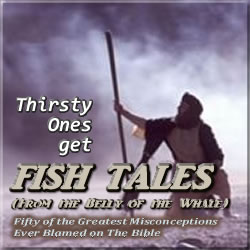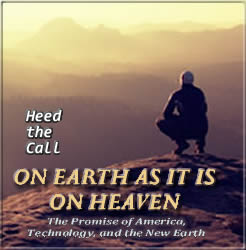A Recipe for Cynicism
Because Dreams and Reality Rarely Coincide in the Way We Expect Them To
There’s an old adage that says, “Some people will cut their nose off just to spite their face.” Those are the same people who look upon the beauty and grandeur of the creation but don’t see the presence of God. They only see His absence. They don’t marvel at the mystery of life; they only groan at the stench of death. No doubt this is a residual effect of the Fall of Man, but as we’ve tried to demonstrate throughout this work, it’s also a residual effect of embracing cynicism as a way of life. Because as tragic as the presence of death in this world is, when seen through the lens of hope, our eyes are opened to a brand-new way of viewing one of humanity’s most dreaded enemies. That’s because when we examine the present creation in its totality, we don’t just see life that inevitably succumbs to death; we also see abundant evidence for death that inevitably gives way to rebirth.
But before I dive into this much-overlooked aspect of the creation, I first need to highlight another way that cynicism colors our worldview, and more specifically, the way it colors our Western view of the world. That’s because the important thing to remember about cynicism is that it always manifests as a result of hope disappointed. By that I mean, if you examine the worldview of various cultures throughout history, one can’t help noticing that the more a particular culture seeks to manipulate the environment, the more pessimistic that culture becomes in regard to the results of that controlling effort.
Story Continues Below
Says Richard Price—the founder and CEO of Academia.edu—on his podcast In Depth With Academia:
The Joy of Cynicism and the Death of Beauty: How Your Worldview Shapes the World You Live In is:
To hear Price’s book review of The Joy of Cynicism and the Death of Beauty, CLICK HERE.
To hear Kent, Zen Garcia and S. Douglas Woodward, as they discuss the 5,500-year chronology from Adam to Christ, from the perspective of The Septuagint Bible, to confirm the contents of Tales of Forever, CLICK BELOW.
Story Continues From Above
As such, the Western approach to mastering the environment, with its emphasis on the scientific method, has both blessed and cursed humanity at large. In many ways, it opened the door to monumental leaps forward in food production, transportation, manufactured goods, health care, and the like. But because of the apparently limitless potential of scientific progress, in terms of economic and personal growth, the backlash of human failure inevitably led to widespread cynicism in the West. But rather than see the problem as a function of human frailty, critics insist the Industrial Revolution, as it came to be called, is the root cause of the disenfranchisement, disillusionment, and dehumanization of the individual. And while this failure may seem like it can rightly be blamed on so-called “Western progress,” I’d suggest, in light of what we’ve examined so far, there’s another culprit that’s much more worthy of blame.
I’d suggest the presumed evils of scientific progress—that is to say, the disenfranchisement, disillusionment, and dehumanization of the individual—aren’t by-products of the Industrial Revolution itself. I’d suggest they’re by-products of hope disappointed, which, in the case of scientific progress, is a hope unlike any other in the history of human achievement. To demonstrate what I mean by this all one has to do is remember the old black-and-white movie reels we were shown in school about the wonderful world of the future, full of flying cars and automated supercities of tomorrow. According to those charming little science fantasies, our future was already supposed to be filled with boundless conveniences, prosperity, and happiness by now.







